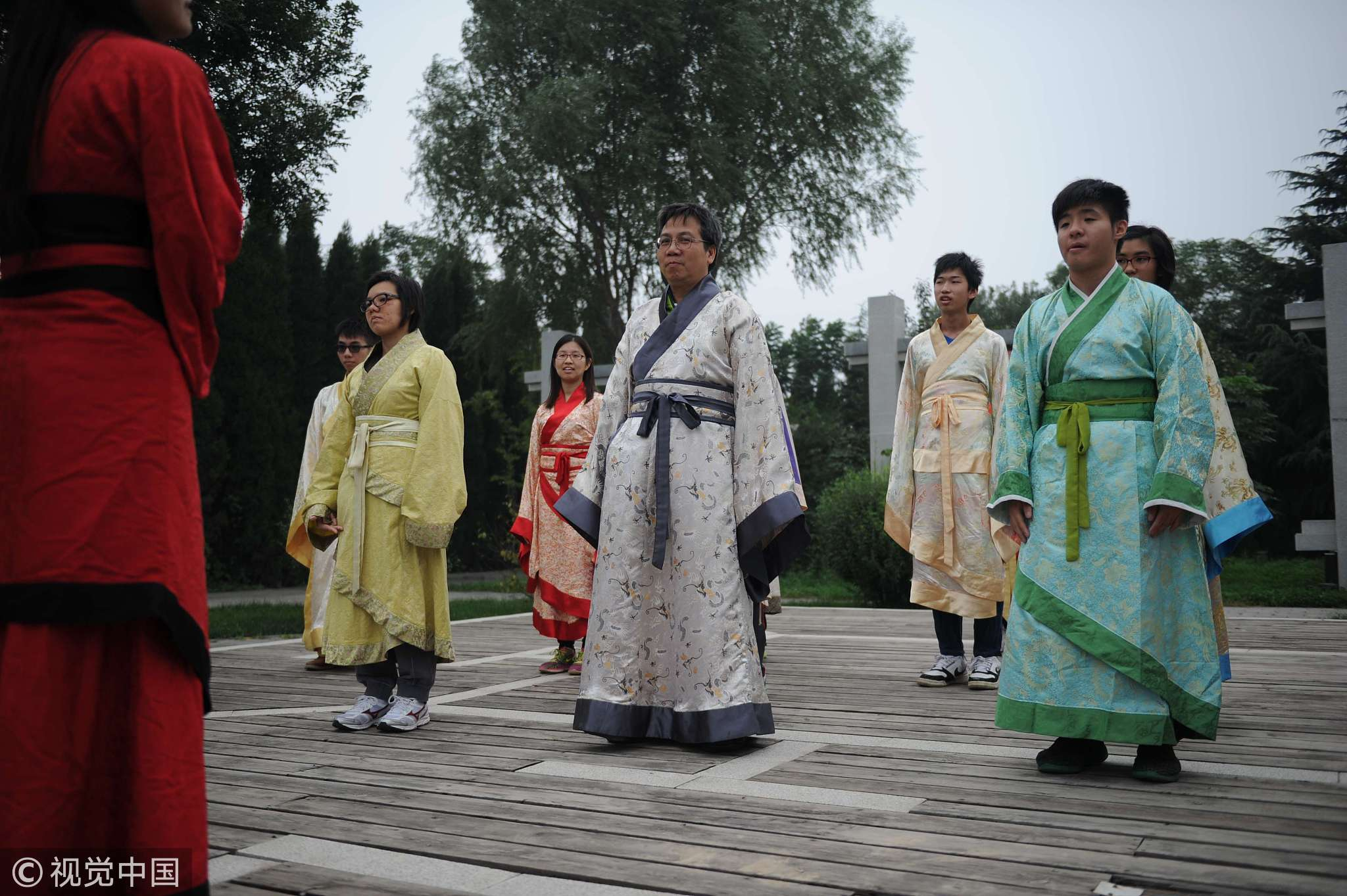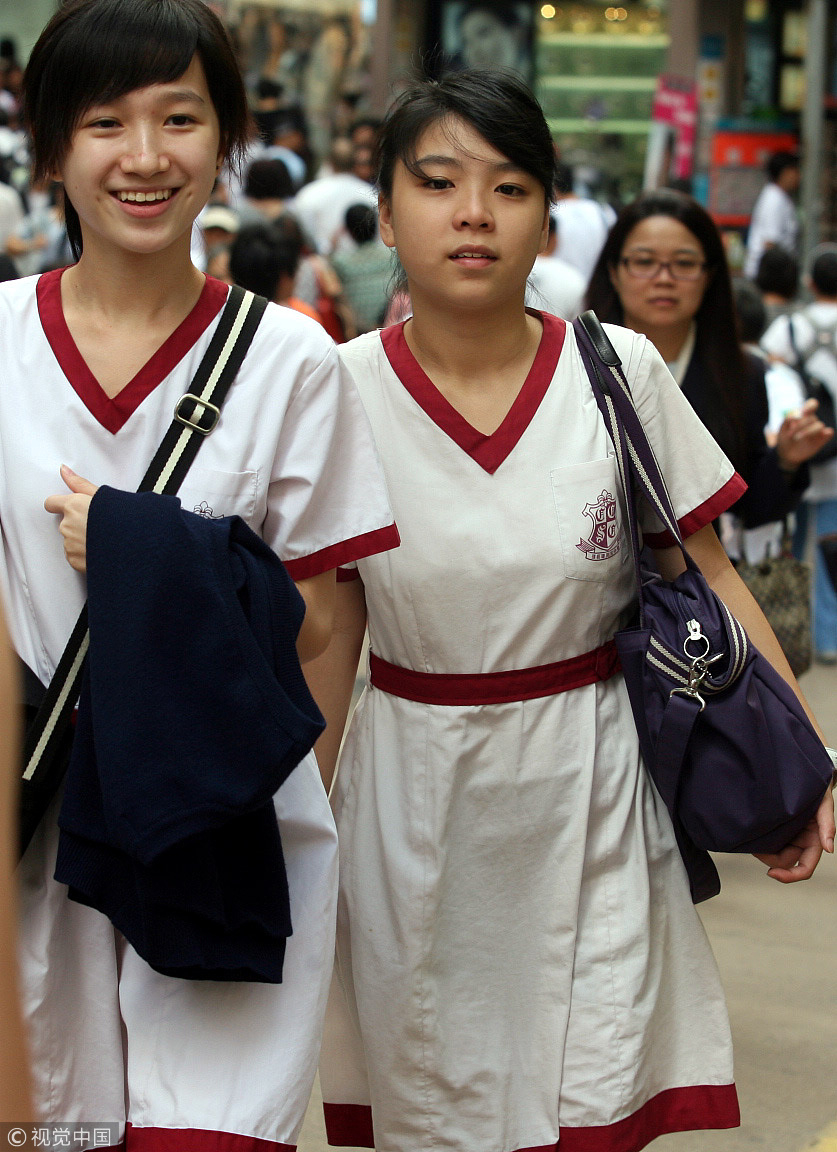
Opinions
10:47, 09-Jun-2018
Opinion: Studying Chinese history helps Hong Kong move forward
Wang Yan

Editor's note: Dr. Wang Yan is the director of the Department for International Exchange at the National Institute of Educational Sciences of China. The article reflects the author's opinion, and not necessarily the views of CGTN.
When Chief Executive Carrie Lam Cheng Yuet-ngor delivered her first policy address at the main chamber of the Legislative Council in Hong Kong on October 11, 2017, she put forward a number of key initiatives, including reinstating Chinese history as a stand-alone compulsory subject in secondary schools.
Soon after, Hong Kong's Education Bureau announced that Chinese history will become a compulsory subject in the revised curriculum for junior secondary schools after several rounds of professional consultations for over four years. The new curriculum will be implemented progressively in schools, starting in September 2020 at the earliest.
While history has been an integral part of curriculum in basic education across the world, the education of Chinese history in secondary schools in Hong Kong has fallen short. A 2016 survey on secondary school students’ understanding of Chinese history revealed their knowledge of the subject was much lower than expected.

Middle school students from Hong Kong experience traditional Chinese culture in Xi'an on Sep 29,2015. /VCG Photo
Middle school students from Hong Kong experience traditional Chinese culture in Xi'an on Sep 29,2015. /VCG Photo
In response to the question, "When was the People’s Republic of China founded?" only 25 percent of the 300 respondents from 80 schools gave the correct answer – 1949.
Outside the school, patriotism used to be one of the hallmarks of Hongkongese people, which was reflected in some famous films and TV dramas, such as "Fist of Fury" and "Wong Fei-hung."
The films were always about Chinese heroes who fought against the invasion of imperialist states before the establishment of the People’s Republic of China, with strong ethos of patriotism and pride in Chinese culture. However, there seems to be less and less coverage of such themes in media.
This might be attributable to the diversification of themes in movie, TV and media programs and changes in people’s appreciation of entertainment in the age of social media. On the other hand, it is evidently associated with the absence of knowledge of history in several generations of Hongkongese people.

Middle school students in Hong Kong./VCG Photo
Middle school students in Hong Kong./VCG Photo
Chinese history used to be taught in secondary schools in Hong Kong under British rule but it only included ancient history and no modern history (from the 1911 Revolution to the founding of the People's Republic of China in 1949) or Hong Kong history.
In the "Reform for the Education System" in 2000, Chinese history was again not recognized as an independent core subject in junior secondary education. Rather, it was divided into four parts: school-based development, merging Chinese history and Western history, social and humanities, and Chinese history as a separate subject.
As a result, Hongkongese know little or nothing about the history of Hong Kong and especially the period before the Opium War in 1841, as well as the history of modern China, which might be part of the reason for the abating of patriotism of the Hongkongese people.
The updated curriculum in 2018 divides Chinese history into nine historical periods, with the learning focused on these periods to help students develop a comprehensive understanding of Chinese historical development, according to the bureau.
It would enable young Hongkongese to understand ancient and modern Chinese history, appreciate the weal and woe of the development of a country, and learn to situate the current issues into a broad context of national and international development.
Such understanding of history, the development of the past and the present, like elsewhere in the world, is fundamental to citizenship and national identity that serves as a guide to thinking and moving forward in a rapidly changing globalized world.
As a spokesman of the education bureau noted, the revised curriculum framework hopes to enable students to study Chinese and world history and culture in a holistic and systematic manner and develop a sense of national identity, love for Hong Kong and international perspectives for coping with opportunities and challenges ahead.
Hopefully, this will be further translated into themes and content relating to the history of Hong Kong, China and the world in movies, TV and social media, which will not only enrich people’s cultural life, but more importantly, will foster a more open and flexible mind for wellbeing in modern work and life.

SITEMAP
Copyright © 2018 CGTN. Beijing ICP prepared NO.16065310-3
Copyright © 2018 CGTN. Beijing ICP prepared NO.16065310-3